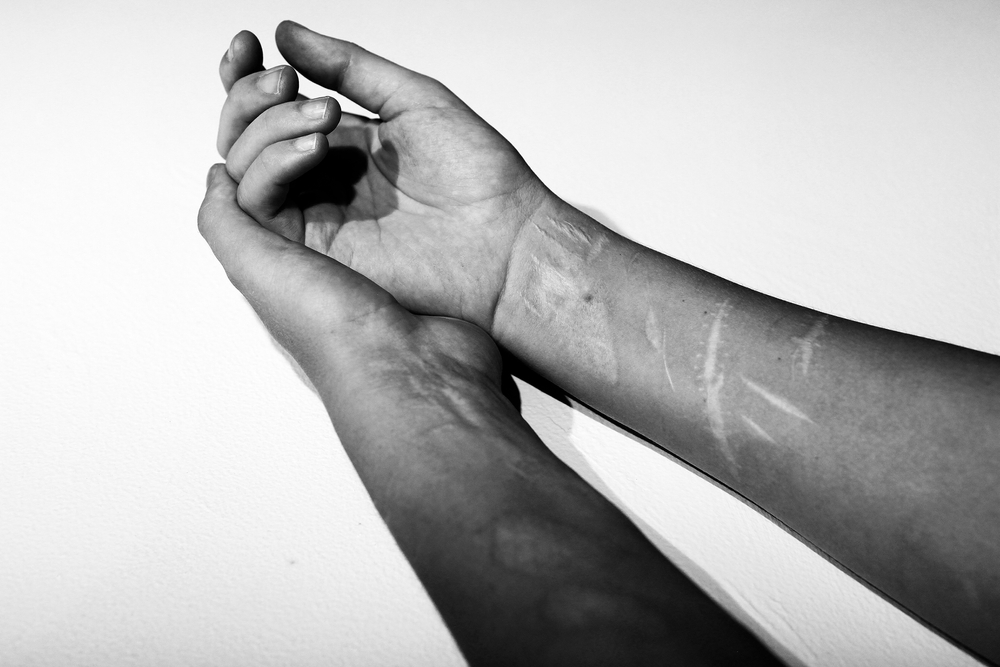Last Updated:
May 16th, 2025
Addiction and Suicide | Signs and Support Options
Reaching out to a mental health professional, calling a suicide prevention helpline (National Suicide Prevention Helpline UK 0800 689 5652) or speaking to a trusted support service could make a vital difference. If you are in immediate danger or feeling overwhelmed, we urge you to seek help right away.
What is considered suicidal behaviour?
Recognising suicidal behaviour is an important part of helping someone who may be struggling. While some people express their distress openly, others may keep their thoughts and intentions to themselves. This can make it difficult to know what’s really going on, especially if changes in behaviour are subtle or easily explained away.
That’s why early awareness and support are so important.

|
Sign of suicidal behaviour |
Why this may be a concern |
| Talking about wanting to die or expressing a desire to self-harm | Direct expressions of suicidal thoughts or intentions can be a clear cry for help. |
| Withdrawing from friends, family or usual activities | Isolation may reflect a loss of interest in life or a desire to avoid emotional connection. |
| Showing intense mood swings, such as deep sadness followed by calmness | A sudden calm mood after distress can indicate the person has made a decision to end their life. |
| Taking risks without regard for safety, including substance misuse or reckless actions | Risky behaviours may suggest the person no longer values their own safety or wellbeing. |
| Acquiring the means to end one’s life, such as gathering pills or other items | Planning or preparing a method is a strong warning sign of suicidal intent. |
| Saying goodbye to others in a way that feels final | Farewell messages or gestures may signal the person believes they won’t be around much longer. |
| Giving away belongings or making sudden changes that could indicate preparation for death | This can suggest the person is putting their affairs in order or preparing to go. |
Of course, some behaviours might have an innocent explanation, but when these actions are paired with other warning signs, it’s important to take them seriously. Reaching out and offering support could make all the difference.
The link between suicide and addiction
The connection between addiction and suicide is deeply troubling, with substances like alcohol and opioids playing a significant role in many suicide cases. In fact, alcohol and opioids are the two most commonly identified substances among suicide decedents, found in 22% and 20% of cases respectively. This is substantially higher than substances like marijuana (10.2%), cocaine (4.6%) and amphetamines (3.4%).
Opioid use, in particular, is linked to some of the highest suicide risks of all. People who use opioids are 14 times more likely to die by suicide and lifetime suicide attempt rates among individuals with opioid use disorder (OUD) range from 17% to 48%.
Alcohol use also contributes heavily to suicide statistics. Since 2001, rates of high-risk drinking have increased by nearly 30% and alcohol use disorder by an alarming 49.4%. Alongside this trend, alcohol-related suicide deaths have risen by 35%, showing just how closely the two issues are intertwined.
What causes the link between suicide and addiction?
There are several overlapping factors that help explain why addiction and suicide are so tightly linked. For some people, especially those already vulnerable to impulsivity and risk-taking behaviours, chronic alcohol intoxication can impair their ability to self-regulate and increase the use of maladaptive coping strategies. This can make it more difficult to deal with emotional distress and in some cases, lead to suicidal behaviour.
Opioids present a slightly different but equally dangerous path. Long-term opioid use causes neurobiological changes that heighten negative emotional states, which can, in turn, contribute to both continued opioid use and increased suicide risk. Furthermore, because opioids ease not only physical but psychological pain, they often become a form of emotional self-medication.
Over time, this negative reinforcement traps individuals in a cycle; where increasing distress and hopelessness may cause suicide to feel like the only escape.
Ultimately, both alcohol and opioids significantly interfere with emotional regulation, distort decision-making and reduce the likelihood of seeking help. When left untreated, this combination can make suicidal behaviour feel like the only way out of emotional or psychological suffering.

Can suicidal behaviours and addiction be treated together?
Both suicidal behaviours and addiction can be treated at the same time and treating them together is often essential for long-term recovery.
Many rehabilitation centres offer specialist support for what’s known as co-occurring disorders, where mental health challenges like suicidal thoughts and addiction are addressed through a carefully structured programme.
However, safety always comes first. If someone is in immediate danger or experiencing active suicidal thoughts, crisis care or a mental health hospital is often needed before addiction treatment can begin. Stabilising the person ensures they are safe and in the right frame of mind to fully engage with the recovery process when the time is right.
Once stabilised, addiction rehab can begin. This stage supports not only the substance use issue but also the emotional struggles behind it. Here’s how different therapies can help with both:
Dialectical behaviour therapy
DBT is especially effective for people experiencing suicidal thoughts and addiction. It helps manage intense emotions, reduce impulsive behaviours and develop healthier coping skills. By combining cognitive-behavioural techniques with mindfulness, DBT supports people in making thoughtful choices rather than reacting out of distress.
Individual therapy
One-to-one therapy sessions provides a private and supportive space to work through emotional pain, self-destructive thoughts and the underlying reasons for addiction. Therapists often use evidence-based techniques to challenge harmful thinking patterns, build emotional resilience and promote healing. These sessions are a key part of long-term emotional recovery.
Aftercare support
Recovery continues long after rehab ends. Aftercare support helps people stay connected, strengthen coping strategies and maintain the progress they’ve made. Services may include group therapy, regular check-ins and relapse prevention planning. Aftercare offers a steady source of encouragement and guidance, helping to prevent a return to harmful patterns of behaviour.
What are the next steps?
If you or someone you love is struggling with addiction and suicidal thoughts, you’re not alone. Help is available. At Addiction Helper, we understand how deeply connected these issues can be and we’re here to guide you to the right support. Call us today for free, confidential advice and take the first step toward safety and recovery.
Our compassionate team are ready and available to take your call, and guide you towards lasting the lasting addiction recovery you deserve.
Frequently Asked Questions
(Click here to see works cited)
- Rizk MM, Herzog S, Dugad S, Stanley B. Suicide Risk and Addiction: The Impact of Alcohol and Opioid Use Disorders. Curr Addict Rep. 2021;8(2):194-207. doi: 10.1007/s40429-021-00361-z. Epub 2021 Mar 14. PMID: 33747710; PMCID: PMC7955902.

